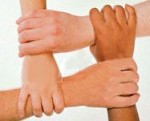
The United Nations issued a powerful policy brief earlier this week that is essential reading for anyone interested in how the Covid-19 pandemic has aggravated regional trends that could bring some Arab countries to their knees, including deteriorating economies, rising poverty and vulnerability, and large-scale human suffering.
But the report’s conclusions and recommendations revert to cliched approaches that have been advocated for decades, with little impact.
This report deserves our attention, though, precisely because it captures in a succinct 27 pages all the major – and still growing – “decades-long challenges” that plague the Arab region’s 436 million people.
These deficiencies are numerous, troubling, and getting worse every day, in arenas like poverty, inequality, vulnerability, unemployment, low social protection, violence and conflict, declining health and education services, human rights deficiencies, refugees and displacement, and “insufficiently responsive institutions” (UNese for poor governance).
The report outlines almost exactly the same problems that tens of millions of Arab citizens have been demonstrating about in their streets since the 2010-11 uprisings. Together, the UN report and the Arab protesters’ demands show how we reached this dangerous point and where we should take immediate action to stop the bleeding.
About a quarter of all citizens live in poverty (115 million of 436 million), most of them without social safety nets or insurance.
The report outlines almost exactly the same problems that tens of millions of Arab citizens have been demonstrating about since the 2010-11 uprisings
The Arab region has the world’s highest wealth inequality, with 31 billionaires owning as much as half all adults in the region. Seventy-four million Arabs are at special risk to the pandemic because they do not have access to handwashing facilities.
The IMF’s growth forecast for the region is the lowest in the last half century. Nearly 60 million people need humanitarian assistance to survive. Oil and gas revenues will drop by 40 percent this year. The region will lose $35 billion in tax revenues this year; fiscal deficits will increase from 2.8 percent to 10 percent of GDP in 2020, requiring more borrowing, belt-tightening that squeezes already thin social services, and higher debt burdens.
The list of facts and figures on our struggling region is long (on gender violence and inequality, informal labour, education, youth, and others), but the one that struck me most is on foreign direct investment (FDI) trends. The report expects FDI to decrease this year by 45 percent – but notes that FDI has been dropping in the region for the past decade, from $88 billion, in 2008 to $31 billion last year.
Of course, all this was anticipated, as many in our region flagged months ago. The pandemic only aggravates and accelerates existing trends, which in turn reflect the damage still being done by dilapidated, dysfunctional governance systems.
The UN cannot say this in such clear terms, of course, given the delicate word games it must play with its member governments, so it is up to Arab region analysts, activists, and scholars to point out the congruence between the “challenges” we face and the demands of Arab protesters in the street.
If the Covid-19 pandemic is indeed an opportunity to build the better world we all seek, this might be time for the UN and its agencies, the World Bank and IMF, international NGOs, private investors, bilateral donors, academic and civil society partners, media, and anyone else who looks into our countries and wonders what to do, to engage and embrace the peaceful protesters on the streets, rather than just point out how hungry and angry they are. Now is the time to listen carefully to what they are saying, and truly understand the pain they feel and the changes they seek.
Read Full Article
UN’s Policy Brief:The Impact of COVID-19 on the Arab Region
Written by Rami G. Khouri
Image: Getty Images
Publication date: July 30, 2020
Independent media and does not necessarily represent the view or opinion of arab.org
arab.org is run by a social enterprise startup
MENA’s first free click-to-donate platform – you click, we donate
Find out more about nonprofits from the Arab World




Copyright © 2024 The Olive Tree SAL, all rights reserved. Terms of Use | Privacy Policy